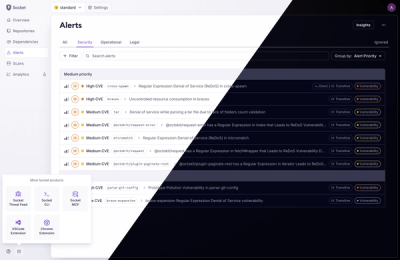Meteorite
Meteorite enables you to add two-way data binding (realtime updates) to your application with minimal effort.
For a live demo, please see http://getmeteorite.com/ . Open up the demo in two different browser windows, make changes in the first browser window and they will instantly appear in the second.
The source code for the demo application is available at https://github.com/llawlor/meteorite-tasks-example .
Dependencies
You need Redis installed and running for Meteorite to work properly.
Install Redis server (on Ubuntu):
$ sudo apt-get install redis-server
Run Redis server:
$ nohup redis-server &
Installation
Add this line to your application's Gemfile:
gem 'meteorite'
And then execute:
$ bundle install
Install required files:
$ rails generate meteorite:install
(view diff)
The generated JavaScript file needs to be added to the assets pipeline. In app/assets/javascripts/application.js, add this line:
//= require meteorite
(view diff)
Run the websocket daemon:
$ ruby daemons/websocket.rb
The Redis server location can be configured at config/initializers/meteorite.rb .
Example Usage in a Task Model
Create a task:
First, we publish a message to Redis with a key of 'tasks' and a value equal to the task's partial.
Meteorite.bind_key(MODEL_NAME.all) will use the table name as the key to bind messages to.
task = Task.create(task_params)
task_string = render_to_string(partial: 'task', locals: { task: task })
$redis.publish(Meteorite.bind_key(Task.all), task_string)
An HTML element with a class of "meteorite" and data attribute for the bind key is used to specify where additional model instances will be added to the DOM.
<table class="meteorite" data-bind-key="<%= Meteorite.bind_key(@tasks) %>">
<% @tasks.each do |task| %>
<%= render partial: 'task', locals: { task: task } %>
<% end %>
</table>
The partial should have a top-level element with an ID of the model instance's bind key.
Individual HTML attributes can be dynamically updated by adding a "meteorite" class, data-bind-key, and data-bind-attr.
<tr id="<%= Meteorite.bind_key(task) %>">
<td>
<%= form_for task, remote: true, html: { style: 'float: left; margin-right: 5px;' } do |f| %>
<label>
<%= f.check_box :checked, class: 'task_check meteorite', data: { bind_key: Meteorite.bind_key(task), bind_attr: 'checked' } %>
<span class="checkbox_text <%= 'checked' if task.checked?%>"><%= task.text %></span>
</label>
<% end %>
<%= link_to raw("×"), task, method: 'delete', data: { remote: true }, class: 'pull-right' %>
</td>
</tr>
<% end %>
(view diff)
Update a task:
Updates can be performed by publishing the model instance's bind key and the model instance to JSON.
task = Task.find(params[:id])
$redis.publish(Meteorite.bind_key(task), task.to_json)
(view diff)
Delete a task:
Model instances can be deleted by publishing the model instance's bind key and the 'delete' message.
task = Task.find(params[:id])
$redis.publish(Meteorite.bind_key(task), 'delete')
(view diff)
Contributing
- Fork it
- Create your feature branch (
git checkout -b my-new-feature)
- Commit your changes (
git commit -am 'Add some feature')
- Push to the branch (
git push origin my-new-feature)
- Create new Pull Request
Items that contributors can help with:
Please discuss major feature changes with me first, to see if changes should be included in this gem or forked as your own.



